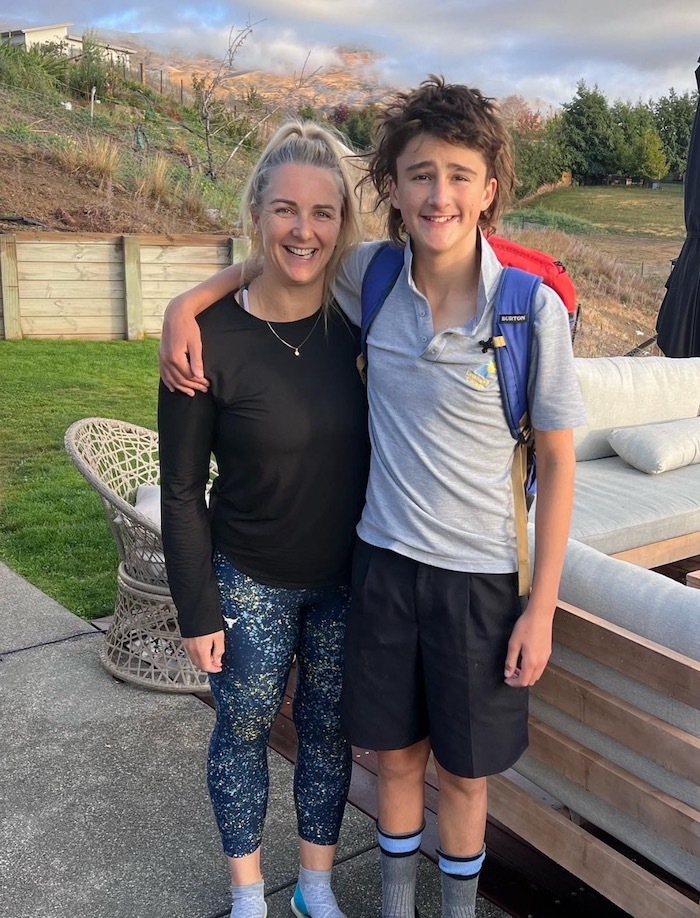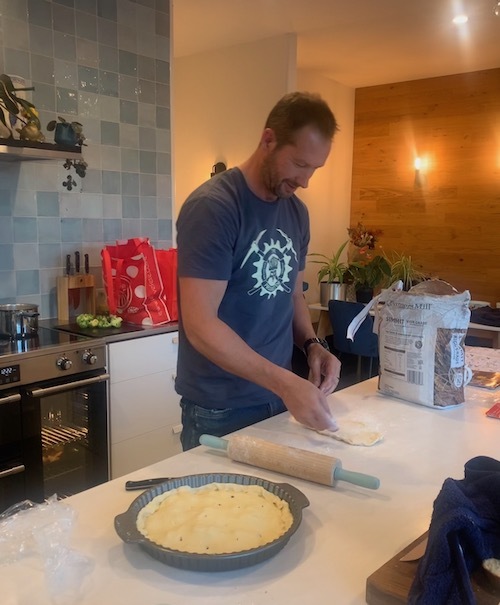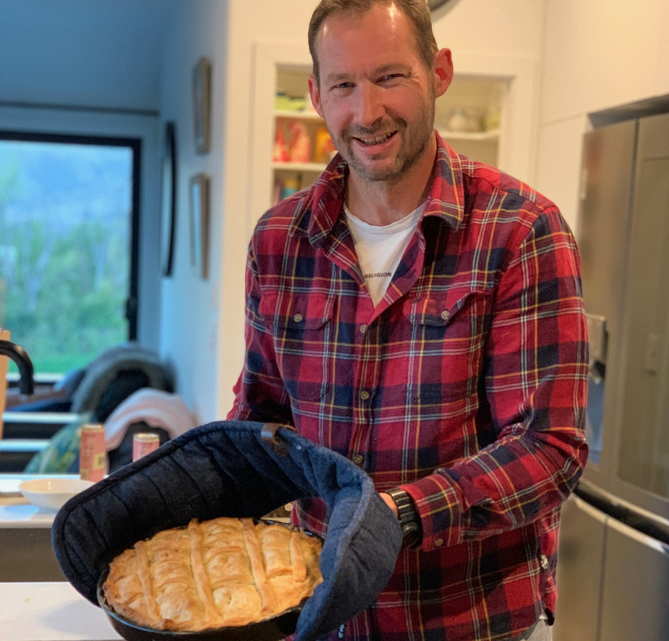A Cromwell mum's tips on exercise after Covid-19
Anna Robb
04 May 2022, 5:40 PM
 From left: Gus Coote (7 month old puppy), Asher Knox (10), Chantel Coote and Jordan Knox (6). All of the family have completed covid-19 isolation in recent weeks. PHOTO: Supplied
From left: Gus Coote (7 month old puppy), Asher Knox (10), Chantel Coote and Jordan Knox (6). All of the family have completed covid-19 isolation in recent weeks. PHOTO: SuppliedCromwell mum of three Chantel Coote said catching covid-19 was nothing like she imagined and the resulting fatigue lingered for longer than she anticipated.
One month on and her and her family are only just starting to feel better.
She is a director of four gyms in Central and Southland and usually fit and full of energy. Luckily when her oldest son Hunter, tested positive for covid-19 no one else at home did, but her time in isolation started.
When her youngest son caught covid-19, she wasn’t so lucky. Both her, her husband Craig and her middle son went down with the virus.
“All up, my middle son, who is 10 and I were home for almost three weeks.”

Chantel with son Hunter Knox (12), who was the first to catch covid-19 in her family. PHOTO: Supplied
She said her boys got fevers, bad unsettled tummies and were throwing up for a day or two.
“They were really buggered after that, then they had pretty mild cold symptoms,” Chantel said.
Hunter, Jordan and Asher Knox bounced back a lot more quickly than their parents.
Chantel said her and her husband found they were exhausted and got puffed just walking up a hill, which was very unusual and unexpected for her.
She found paracetamol, Vicks formula 44 cough medicine and plenty of sleep was the best way to get through the toughest days.
“Even on day ten I still felt like I had been hit by a truck.
“It was a challenging time, we did movies, baking and walks…. You’ve got to try to look after yourselves. There was no way that we could do our usual exercise and no bike rides .”
Chantel said the community support she experienced while they were in isolation was great.
“The schools sent home reading materials and packages for the boys.”
Her children attend Goldfields Primary School and Cromwell College.

Chantel's husband Craig Coote enjoyed the opportunity to do home baking while they were isolating with covid-19. PHOTO: Supplied

The end result ...
“You can’t help catching covid-19. I’m happy to talk about it because I don’t want people to feel like that… I got covid, and then yes, it’s okay. My whole family have had it.”
The personal trainer with 20 years experience said her advice on returning to exercise is to ease back into it and listen to your body.
“Be patient with yourself and take your time. Don’t do what you would normally do…. Just treat yourself kindly and do what you can.”
“After three or four weeks since we got it, we’re at ninety to one hundred percent only now.
“My team [at NGR gyms] are amazing and so supportive of each other, they’ve been really good at helping out… and making it work well during tough circumstances,” Chantel said.
“Covid is going through, it feels like a dribble, it seems people are consistently getting it...heaps of people are isolating. But classes are still good, and all have people in them.”
Her advice is extending to classes at the gyms, with instructors offering options for people just back to exercise including low impact adaptations of some activities.
The government’s Unite against covid-19 website said after being sick and not exercising or moving around much, your body will need time to get back to your normal exercise levels.
Your doctor or healthcare professional can provide more tailored advice around how to get back into exercise. More information on returning to exercise is on the Health Navigator website.
The Southern District Health Board say hospitalisation of people with COVID-19 continues to be high throughout the Southern district.
These high numbers continue to put pressure on our hospital systems, including emergency departments, due to the streaming of patients into red stream (covid-19 positive) and green stream (covid-19 negative). If you feel that you or a member of your whānau require emergency care, remember:
· Please keep emergency departments for emergencies. If in doubt, please call Healthline on 0800 611 116 at any time.
· If you or a member of your household have covid-19, please do not show up at the hospital emergency department without contacting them prior to your arrival. Please call 111 at any time of the day or night.
· The best way you can support healthcare workers and hospital emergency departments is to get your covid-19 booster dose if you are eligible. A booster dose is your best protection against hospitalisation for covid-19
By working together and looking after each other, all of us in the Southern district can support our hospitals and healthcare workers.
Central Otago reported 62 new positive Covid cases yesterday and 434 active cases. For the Southern region there are 900 new positive cases and 5987 total cases (not recovered from the last seven days). At 8am on May 4, 24 people are in Dunedin hospital and six in Southland. No one is in ICU or being ventilated.
If you have a story of how you've managed with covid-19 isolation to share please email: [email protected]


